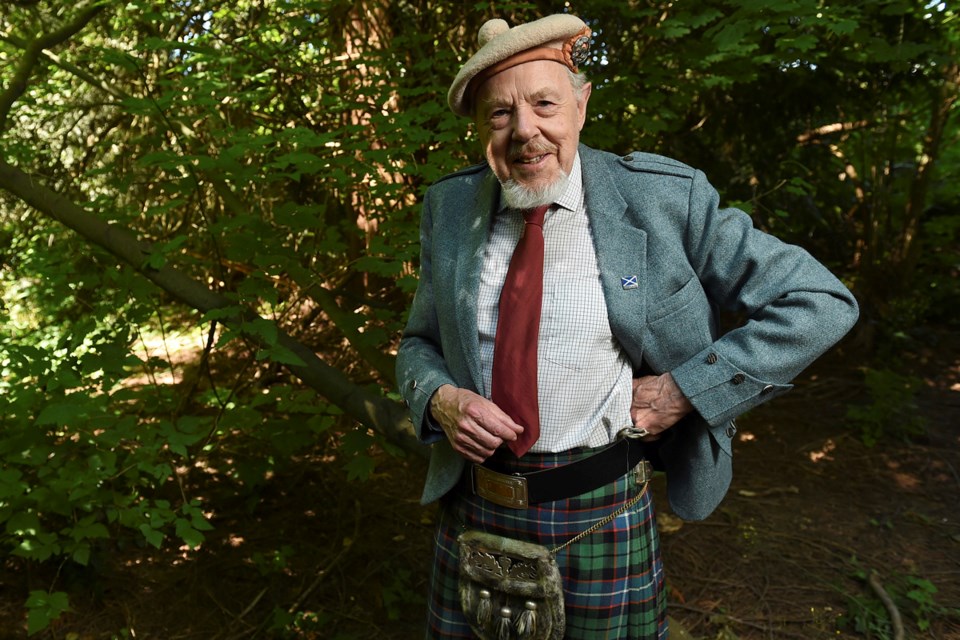British politics had been upended. The prime minister is quitting, the opposition leader has been rejected by the overwhelming majority of his caucus, the leader of the far-right United Kingdom Independence Party is retiring triumphant, and Scotland is champing at the bit to quit the U.K. and stay in the European Union.
It’s all a result of the Brexit vote two weeks ago, the successful referendum to remove the U.K. from the EU. But a Vancouver academic says the roots of the result can be traced back more than 1,000 years and different religious traditions between the English and the Scots are undeniably part of the mix.
Prof. James Russell, a professor emeritus at UBC with a background in the classics and the unmistakable accent of the Scottish lowlands, predicts his native land will vote for Europe over the U.K. He says that is not a 21st century phenomenon, but a continuation of a centuries-old dichotomy.
“The Scots are very conscious of their connections with Europe,” he says. “They have always been a part [of Europe] in a way that the English never were … The Scots were always more European than the English.”
The Scots have had a long and very close relationship with the French in particular. This is not coincidental to the fact that the French and the English were for centuries implacable enemies and that the enemy of my enemy is my friend. Western France is also home to peoples who share the Scots’ Celtic roots. But more significant, says Russell, is the long interplay between the Scottish and French royals.
“Mary, Queen of Scots, for instance, spent all her childhood in France,” he says. The relationship between Scotland and France was known as the Auld Alliance and dates to 1295, when the kingdoms of France and Scotland agreed to invade England if either were attacked by the common enemy.
Like the Anglo-Saxons of England, the Celts of Scotland, Ireland and Wales were eventually Christianized, but the Reformation upended whatever sense of unity that might have created among the peoples of the islands.
The rebellion against the Roman Catholic Church led the British, among others, to create Protestant variations of Christianity. But the ways in which the English and the Scots went about this revolutionary act were radically different and Russell believes this explains why Scotland voted to stay and England voted to leave the EU.
“The Anglican worship is almost the same as the Catholic worship,” he says. “They have bishops and all the apparatus of the Catholic church.”
Henry VIII, who founded the breakaway Church of England, had his own personal reasons for breaking with Rome. He wanted a divorce. The Scots, on the other hand, took a more deeply theological approach to the Reformation. Where England replaced Catholicism with a Protestant version that looked much the same as the Church of Rome, Scotland, Russell says, took on the Reformation as an “intellectual business.” The Anglicans carried over the top-down approach of Catholicism, with its hierarchy and highly codified liturgy. The Scots, who rejected Catholicism to create what would be known as Presbyterianism, imprinted on their church a governance structure that reflected pre-Christian ways.
“These guys have always been rather democratic, that’s part of the clan system,” he says. “The leader of the clan must consult his followers and all the members of his clan.” The Scottish church elects its own elders and each local church appoints its own minister. This democratic structure has been so integral to Scottish life, says Russell, that the General Assembly of the Church of Scotland, which meets annually, was viewed by many as the voice of Scotland during the time when there was no Scottish Parliament.
Russell admits that the Scottish people, like most in Western Europe, have become lukewarm toward religion, but he is emphatic that religious heritage played a part in the Brexit vote and will ultimately lead to Scottish secession from the United Kingdom. The Presbyterian Scots, with a tradition of non-hierarchical and more democratic religious governance than the Anglican English, are having a particularly bitter reaction to the idea that something they did not vote for will be thrust upon them from the outside, he says.
The 2014 referendum on Scottish independence was defeated 55 to 45, but Brexit “has stiffened the resolve” of Scots, he adds.
While religious differences have not been at the root of historical conflicts between the Scottish and the English, the story is very different in Ireland. Northern Ireland, which has a majority Protestant population and is part of the United Kingdom, voted to remain in the EU. Centuries of Protestant-Catholic strife have largely subsided since the Good Friday Agreement of 1998. Yet few people seriously expected the island to be reunited until the Brexit vote threw so many assumptions out the window.
The Republic of Ireland is an EU member and the prospect of erecting border stations between the republic and Northern Ireland when Brexit occurs has led some to suggest now is the time to unite Ireland.
“I’ve heard two opinions, saying it’s impossible and others are saying, no, it’s a possibility as long as there was a recognition of the two religions,” says Russell.
These distinct responses to contemporary politics remind us that, while church attendance may be down significantly from previous generations, the echoes of our religious past reverberate in ways we may not expect.
PacificSpiritPJ@gmail.com



